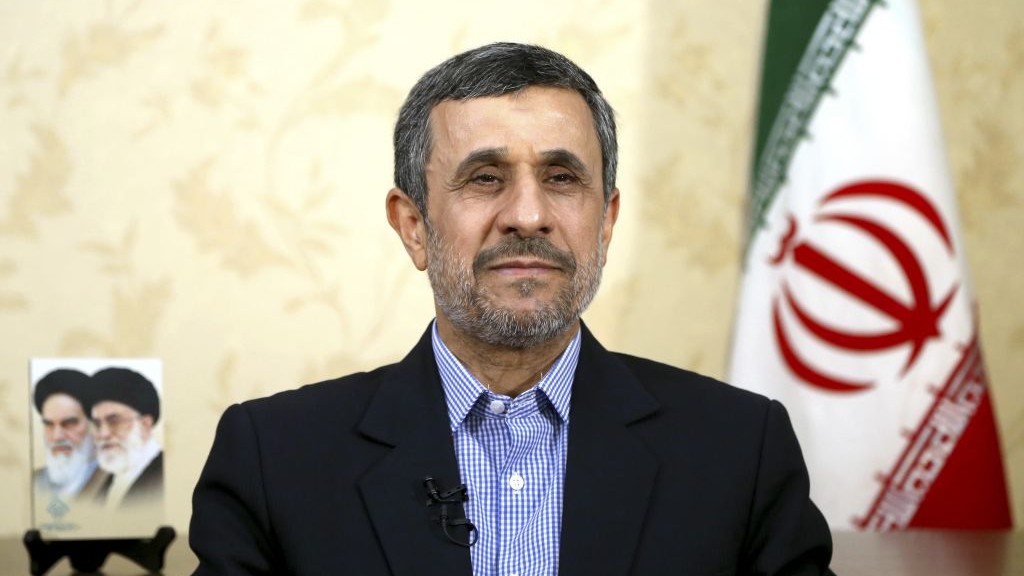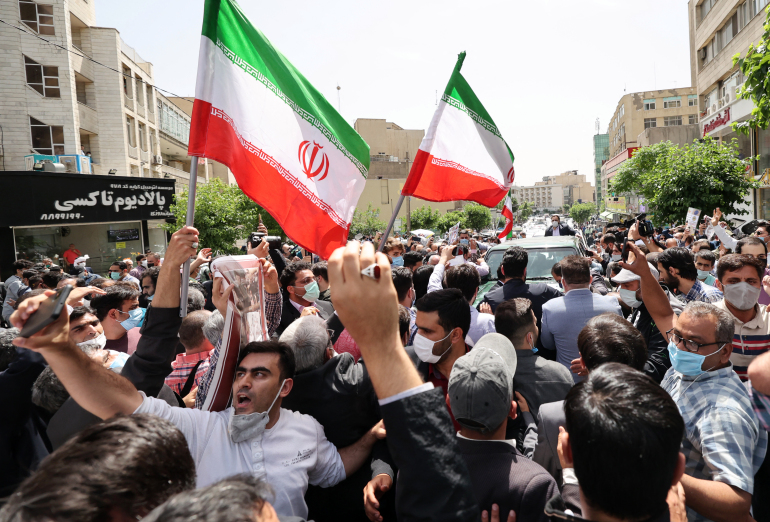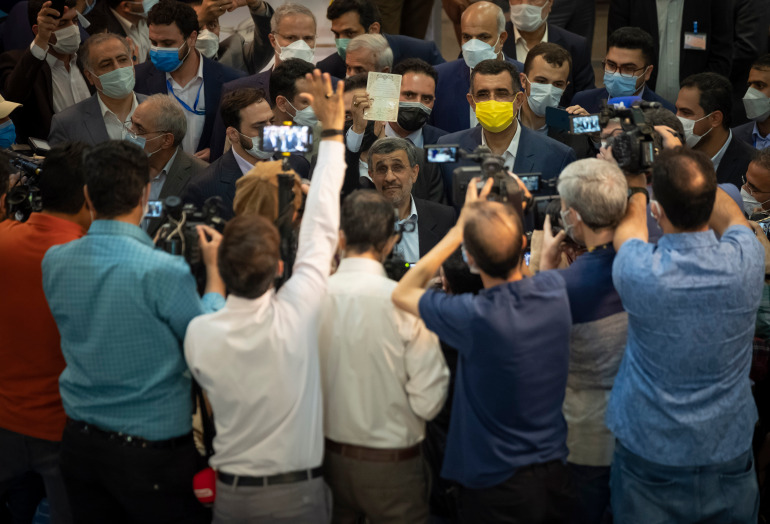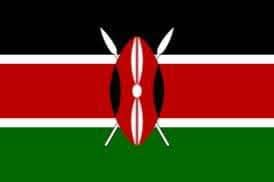Madaxweyne Donald Trump ayaa amray in ciidamada Mareykan ah loo diro magaalada Portland ee gobolka…

Iran’s Mahmoud Ahmadinejad registers to run for president – again
TEHRAN, Iran – Controversial former president Mahmoud Ahmadinejad has once more signed up to become Iran’s next president, but the anticipated top candidates for the June election have yet to register.
The ultraconservative, who was president from 2005 to 2013, tried to run again in 2017 but was disqualified by the Guardian Council – a constitutional vetting body comprised of six clerics and six legal experts.
Observers say that the divisive figure, who still has followers among some portions of the Iranian population, will likely be disqualified again.
Supreme Leader Ali Hosseini Khamenei promised on Tuesday to exert zero influence in the June 18 election that will see relatively moderate President Hassan Rouhani replaced after fulfilling two terms.
 Supporters of Iran’s former president Mahmoud Ahmadinejad gather outside the interior ministry [Atta Kenare/AFP]
Supporters of Iran’s former president Mahmoud Ahmadinejad gather outside the interior ministry [Atta Kenare/AFP]Ahmadinejad entered the interior ministry on Wednesday, the second day of candidate registration, with a crowd of his supporters surrounding him – breaking COVID-19 protocols that allow candidates to only be accompanied by one person into the registration area.
Screaming and chanting slogans, some of his entourage scuffled with interior ministry staff as he was entering. After registering, Ahmadinejad climbed a fence outside to wave to his fervent supporters.
In a press conference following registration, the former president whose controversial re-election sparked the 2009 Green Movement and protests, cast doubt on the veracity and popularity of Iranian elections in the years following his presidency. He said presidential elections have now become an “empty drum” and said authorities do not disclose transparent figures.
“If I’m disqualified, I won’t support the elections and I won’t vote,” he said, also claiming that the country’s deep woes cannot be fixed with the current governance style.

More prominent conservatives expected
According to the election headquarters, more than 59 million Iranians will be eligible to vote. But, as with the parliamentary elections in February 2020, which saw the lowest turnout in at least 40 years, the presidential election is also expected to see low turnout.
Registration closes on Saturday afternoon, and the main candidates for the upcoming elections have yet to formally register.
Reports suggest judiciary chief Ebrahim Raisi will sign up, which would potentially make him the top candidate as he enjoys widespread backing from fellow conservative politicians. Parliamentary speaker Mohammad Bagher Ghalibaf has reportedly told lawmakers he will not run and will support Raisi. Both men ran unsuccessfully against Rouhani in 2017.
On Wednesday, deputy parliament speaker Amir Hossein Ghazizadeh Hashemi registered to vie for the presidency.
Rostam Ghasemi, who served as petroleum minister under Ahmadinejad, and Mohammad Abbasi, sports and labour minister in two different Ahmadinejad presidencies, also registered. The former president’s agriculture minister, Sadegh Khalilian – who was disqualified both in 2017 and in 2013 – also signed up.
The election headquarters said 57 people tried to register on Tuesday, many of whom were conservatives and hardliners.
No prominent reformist has signed up so far and it is unclear whether the embattled reformists could have a viable candidate.
Foreign Minister Mohammad Javad Zarif, voted as most favourable by the reformists, declared on Wednesday he would not run.
“Now that concerned friends are sure about my candidacy, I ask them to focus on their priority which is internal power and let us focus on ours which is safeguarding national interests and ridding people of cruel US sanctions,” he wrote in an online post, in reference to ongoing efforts in Vienna to restore Iran’s 2015 nuclear deal with world powers.
Hardliners have bashed Zarif for the past two weeks as a confidential audio tape of an in-house interview with him was leaked in late April. In the tape, he candidly discusses power dynamics in the Islamic republic, noting how he had to repeatedly “sacrifice” diplomacy for operations and politics driven by the Islamic Revolutionary Guard Corps and Major General Qassem Soleimani, who was assassinated by the United States in January 2020.
Reports say former parliamentary speaker Ali Larijani, who brokered the 25-year China-Iran comprehensive cooperation accord, could become a candidate.
Prominent reformist Mostafa Tajzadeh has said he will register on Friday, but a recent unilateral proclamation by the Guardian Council may bar him from running since he was imprisoned after disputing Ahmadinejad’s re-election results.
Last week, the council abruptly set new conditions for candidates, a move that some criticised as illegal. It said candidates must be aged between 40 to 75, have no criminal background – including dissent – and exhibit documents showing at least four years of senior executive leadership experience.
SOURCE: Al Jazeera


